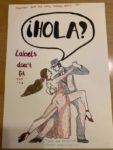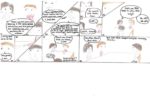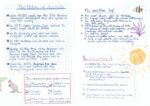Englisch
Englisch als erste Fremdsprache
Frei nach Roger Bacon, einem englischen Philosophen, gilt auch bei uns: Knowledge of languages is the doorway to wisdom. Die Fremdsprachen sollen also als Tor zu Wissen und Weisheit dienen und den Schülerinnen und Schülern die Welt ein Stück näher bringen.
Das Fach Englisch wird in der 5. Klasse verpflichtend für alle Kinder bis zur Klassenstufe 12 fortgeführt.
In der Sekundarstufe II entscheiden die Schülerinnen und Schüler, ob das Fach als Leistungs- oder als Grundkursfach belegt werden soll.
Schülerinnen und Schüler, die einen Leistungskurs Englisch besuchen, legen eine schriftliche und sprachpraktische Abiturprüfung ab.
Schülerinnen und Schüler, die einen Grundkurs Englisch besuchen, können entscheiden, ob sie eine mündliche Prüfung absolvieren möchten.
In der Schule gilt immer häufig noch der Grundsatz „Erst lernen, dann gebrauchen!“ Eine Sprache lernt man aber, indem man sie gebraucht. Otto Jespersen (dänischer Linguist)
Diese Idee wird am MCG durch zahlreiche Veranstaltungen wie die jährlichen White-Horse-Theateraufführungen, den Debating Club, die oft auch sehr erfolgreiche Teilnahme am Bundeswettbewerb Fremdsprachen, die Gestaltung einer interkulturellen Woche in Klasse 8 oder die Möglichkeit der Teilnahme an einer einwöchigen Fahrt nach England verwirklicht.
Im Folgenden finden sich einige Beispiele aus dem Unterricht der Sekundarstufe I und II:
Beiträge
infoAlle Beiträge, die jemals auf dieser Seite erschienen sind, finden Sie im Archiv.











